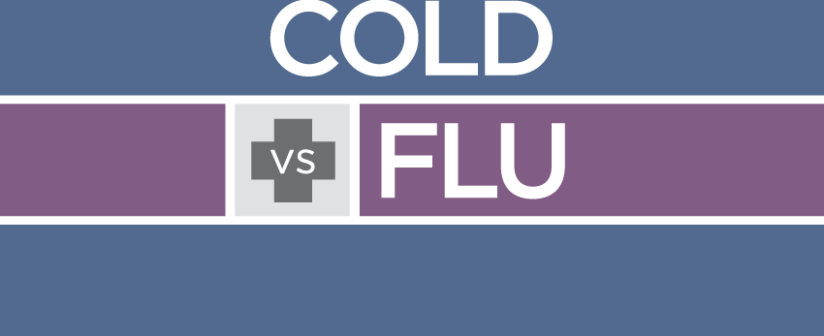The common cold and the flu may seem similar at first. They are both respiratory illnesses and can cause similar symptoms. But different viruses cause these two conditions. Your symptoms will help you tell the difference between the two.
Both a cold and the flu share a few common symptoms. People with either illness often experience:
- a runny or stuffy nose
- sneezing
- body aches
- general fatigue
As a rule, flu symptoms are more severe than cold symptoms.
Another distinct difference between the two is how serious they are. Colds rarely cause other health conditions or problems. But the flu can lead to sinus and ear infections, pneumonia, and sepsis. To determine whether your symptoms are from a cold or from the flu, you need to see your doctor. Your doctor will run tests that can help determine what’s behind your symptoms.
If your doctor diagnoses a cold, you’ll only need to treat your symptoms until the virus has run its course. These treatments can include using cold medications, staying hydrated, and getting plenty of rest.
Taking a flu medicine early in the virus’ cycle may also help. Rest and hydration are also beneficial for people with the flu. Much like the common cold, the flu just needs time to work its way through your body.
Cold Symptoms
If you have a cold, you’ll probably experience symptoms such as:
- runny or stuffy nose
- sore throat
- sneezing
- mild-to-moderate fever
- cough
- headache or body aches
- mild tiredness
Flu Symptoms
Flu symptoms can be similar to those of a cold, although they tend to be more severe. Symptoms can include:
- dry, hacking cough
- moderate-to-high fever (although not everyone with the flu will run a fever)
- sore throat
- shaking chills
- severe muscle or body aches
- headache
- stuffy and runny nose
- profound fatigue (may last up to two weeks)
Some people may experience vomiting and diarrhea, but this is more common in children.
Cold Treatment
Colds are contagious during the first two to three days, so stay home and rest up. Because this is a viral infection, antibiotics are not effective in treating a cold. However, over-the-counter medications can relieve congestion, aches, and other cold symptoms. Drink plenty of fluids to avoid dehydration.
Some people take natural cold remedies, such as zinc, vitamin C, or Echinacea. According to studies haven’t confirmed whether these remedies can prevent or reduce the symptoms or length of a cold.
Colds usually clear up within a few days. See a doctor if your cold hasn’t improved in about a week, or if you develop significant or persistent fevers. You could have allergies, or a bacterial infection (such as sinusitis or strep throat) that requires antibiotics. A nagging cough could also be a sign of asthma or bronchitis.
Flu Treatment
In most cases, fluids and rest are the best way to treat the flu. Over-the-counter decongestants and pain relievers such as ibuprofen and acetaminophen may control your symptoms and help you feel better. However, never give aspirin to children. It can increase the risk of a rare but serious condition called Reye’s syndrome. Drink plenty of fluids to prevent dehydration.
Your doctor may prescribe antiviral drugs to treat the flu. These drugs can shorten the duration of the flu and prevent complications such as pneumonia, but you need to take them within the first 48 hours of getting sick in order to have a positive impact.
Website:
http://www.healthline.com/health/cold-flu/flu


